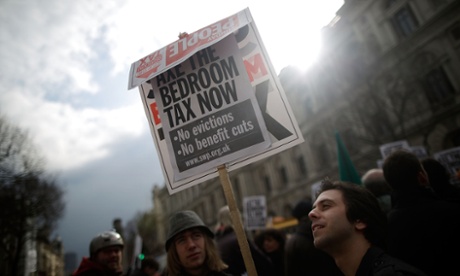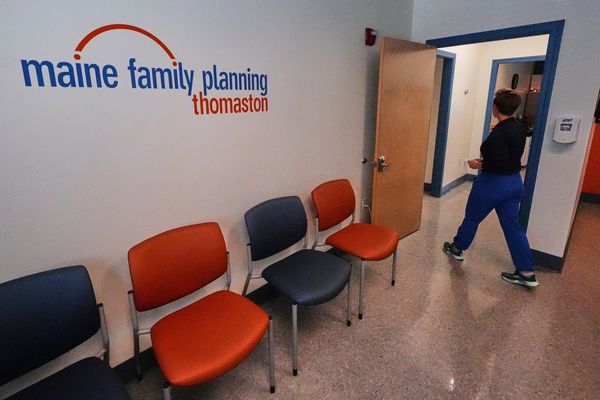
“I’ve been living on toast because it’s cheap. I’ve been sitting in the dark because I can’t afford to run electricity.” These are the words of a social housing tenant struggling to pay the bedroom tax.
Another writes: “We ended up having to sit here in the winter with blankets and sleeping bags, too afraid to turn on the heating. And we’ve had go without food.”
The spare room subsidy currently affects 600,000 people. Introduced in April 2013, the reduction in housing benefit and taxation on unoccupied rooms in social housing can add between £40 to £100 a month to tenants’ bills, unless they move to another property. This financial strain can have a severe impact on the livelihoods of social housing tenants, as shown in a new blog set up by a PhD student at the London School of Economics (LSE).
Eileen Herden launched My Spare Room to offer a space for those hit by the bedroom tax policy to share their experiences anonymously and reflect on how their lives have changed since the legislation was implemented. Through first-hand accounts and photographs of the room, the blog describes the impact of welfare reform “better than any report could ever try to do”, Herden says.
The idea for My Spare Room came through a research project by Herden and colleagues at LSE to better understand the impact of welfare reform (pdf). They conducted more than 400 interviews with working age social housing tenants over two years, and found most people were distressed by the policy, and a few even admitted to suicidal thoughts. “I found that it was a real struggle for many people to govern the shortfall between housing benefit and rent, and that struggle exasperated other problems,” Herden says.
For Luke, the bedroom tax adds another £21.77 to his weekly bill. He writes: “Paying the bedroom tax when you don’t have the money spare makes it harder to live; it causes a certain amount of depression. It makes you feel very low.”
Luke and his wife raised their two children in their council flat in Wolverhampton. Now the children have left they have two unoccupied rooms, so the amount of rent for which they can claim housing benefit has been reduced by 25%. He calls it an “anti-social policy”.
Other contributors to the blog express similar feelings. “I have found the bedroom tax completely distressing and destabilising. It’s rocked the core foundation of my family and I’m a changed person because of it, and not in a good way,” writes Emma, who pays £15 a week for the spare room in her Wiltshire home. “The bedroom tax has affected my mental health, and that’s a problem that I have anyway because I have post-traumatic stress. And it’s affected my health so badly that I’ve now become registered disabled.”
The contributors to My Spare Room share extremely personal anecdotes. Many are unemployed because of health reasons, so find it difficult to keep up with bills. Others struggle to pay for a room used only when children visit at weekends. There is an overwhelming sense that the tax has worsened issues such as debt, access to food, fuel poverty, as well as insecurity of tenure.
Bryan writes: “One of the things that no one seems to point out is that it’s not just a house, it’s actually someone’s home. And it shouldn’t be viewed as a sort of halfway house that someone is lending you until you either rent privately or you buy your own house.”
Luke shares these feelings: “It’s embarrassing because no one wants to owe money. And in the back of your mind you have the stress that you might lose your house.”
Herden hopes the blog will encourage an open discussion on the policy. Many of the posts have been politically charged, with contributors reflecting on what it means to be a citizen of the UK and the role of fairness in society. “This is a taxation that was brought in by somebody who has never been in a situation like the people it affects,” writes Luke. Emma says she feels “very disenfranchised – even though I vote – and very powerless”.
She adds: “Welfare is supposed to protect the weakest in our society and help those people live a productive life. It’s about the strongest looking after the weakest.”
While contributors to the blog might feel isolated by the legislation, the researchers behind My Spare Room believe it is important to show that those affected by the tax are not alone. “It’s a positive process for them,” says Herden. “It’s helpful to hear what other people are going through, so there’s a sense of solidarity.”
Sign up for your free Guardian Housing network newsletter with news and analysis sent direct to you every Friday. Follow us: @GuardianHousing







